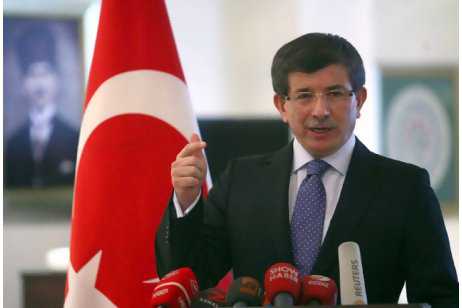
“You are a resister of the 25th hour,” the leader of the European Parliament’s Green faction told Baroness Catherine Ashton, the European Union’s foreign policy chief, during a February debate on the upheavals in Egypt and Tunisia. Daniel Cohn-Bendit may as well have been talking about the reaction of the West as a whole. With the White House refusing to call for Hosni Mubarak’s resignation until the last moment, and with the EU having failed, yet again, to articulate a clear stance, only a few western countries found themselves on the right side of history when Mubarak’s rule finally came to a close.
That one of those countries was Turkey, a Nato member and an EU candidate, and that the person who articulated its position was none other than its prime minister, Recep Tayyip Erdogan, is more of a surprise than meets the eye.
Erdogan’s Justice and Development (AKP) government has never placed a high premium on human rights and democratisation with regard to the Middle East. Stability – the one word that Turkish officials mentioned more than any other whenever they spoke of their country’s policy towards the region – seemed to override all other concerns. It became, essentially, a byword for non-interference. Turkey buried its head in the sand during the violence that followed the flawed 2009 presidential election in Iran, calling the electoral dispute, as well as its fallout, an “internal matter”. It turned a blind eye to human-rights abuses and autocratic rule in places like Syria and, for that matter, Egypt. Finally, it has looked the other way in Sudan, with Erdogan himself insisting that there has been no genocide in Darfur and that, in any case, a Muslim – in this case, Sudanese president Omar al Bashir – “could not perpetrate such a thing”.
Turkish policymakers have tried to shield themselves from the criticism that such statements and policies have inevitably provoked in the West and, to a lesser extent, in Turkey itself, by citing the importance of discretion.
“We’re certainly not going to promote human rights and democracy the way the American neocons have,” Suat Kiniklioglu, the spokesman for the Turkish parliament’s foreign affairs committee, told me a year ago. “If the aim is to produce results, we find it more effective to speak face to face. We prefer to talk to them behind closed doors rather than criticising them through media outlets.”
Ahmet Davutoglu, Turkey’s tireless foreign minister, sounded a similar note when he told a Turkish journalist that “we tell our counterparts the importance of being respectful of human rights. But we don’t do it in public; this is a requirement of sincerity.” (What Davutoglu forgot to mention was that Turkey had made an exception for Israel, repeatedly – and very publicly – chastising its government for its treatment of the Palestinians.) Asked whether Turkish diplomats really raised human-rights issues with their interlocutors in countries such as Syria or Iran, Kiniklioglu said that they did – but that “it’s not at the top of our agenda”.
via In throwing its weight behind Egypt’s protests, did Turkey overbalance? – The National.

Leave a Reply